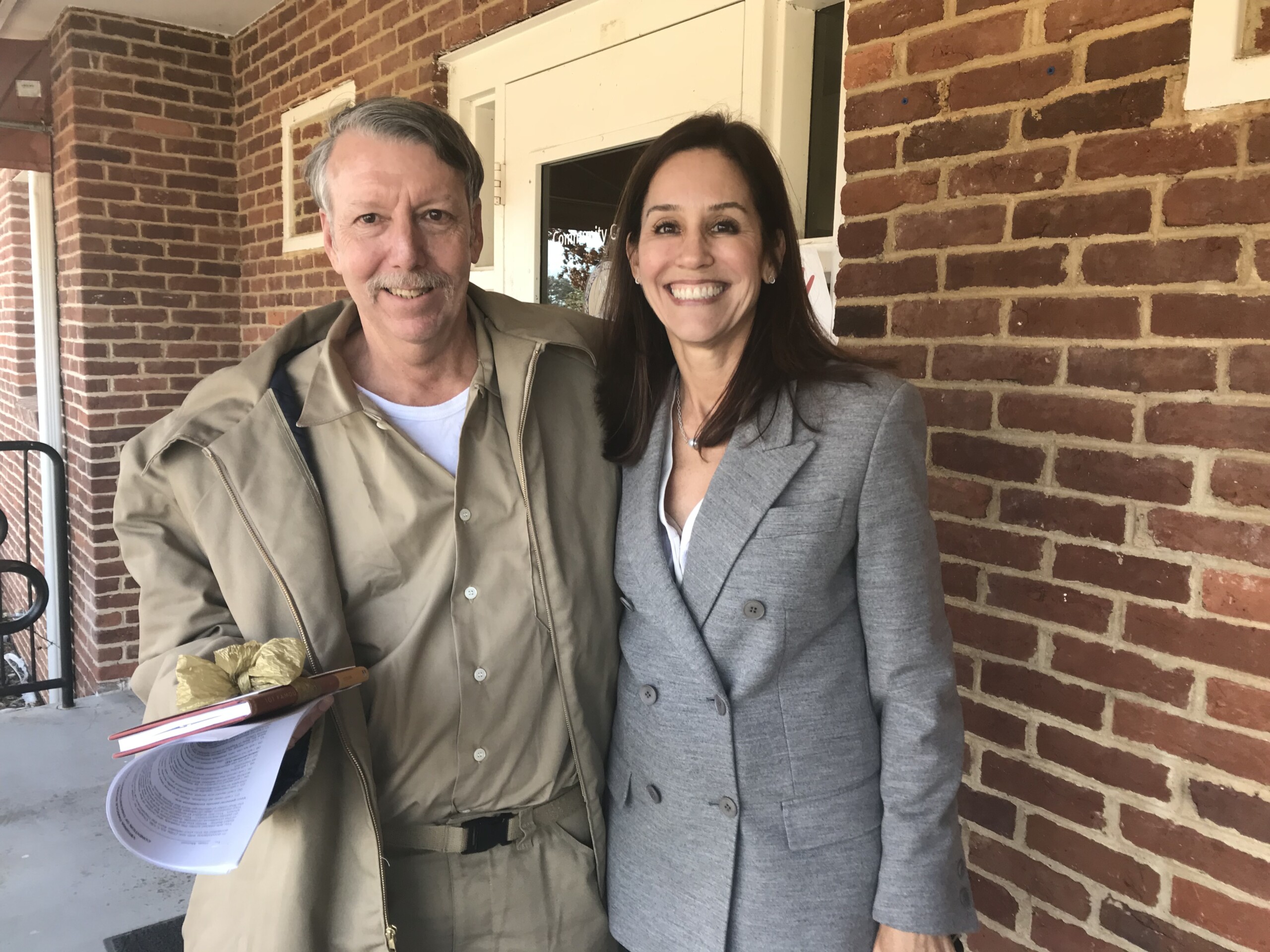Justice For Michael Haas!
On April 19, 2022, the Virginia Court of Appeals unanimously granted a writ of actual innocence to Michael Haas, who has spent more than 23 years in prison for a crime he did not commit. Michael, who has been on parole since 2017, is now fully exonerated thanks to the work of the Mid-Atlantic Innocence Project (MAIP), his attorneys, Julia Dahlberg of London & Mead, William Hurd of Eckert Seamans, and Siran Faulders of Troutman Pepper.

In 1994, Michael Haas was accused of sexually assaulting his two young sons – a crime he did not commit. His children were coerced to testify against him by an overzealous child psychologist; their testimony bolstered by a litany of faulty medical evidence. Based on these two factors, he was convicted and sentenced to spend the rest of his life in prison. Michael’s children recanted their accusations soon after trial. Unfortunately, their pleas fell on deaf ears, and despite numerous attempts to bring the truth to light, Michael sat in prison for 23 long years. He was released in 2017, based on his age, and was forced to register as a sex offender.
MAIP picked up Michael’s case in 2014, and through investigation and an evolution in the science, we obtained evidence that the medical examinations performed in 1994 were conclusively incorrect: there was in fact no medical basis to believe the Haas children had ever been assaulted.
In 2020, thanks to changes in Virginia’s law governing post-conviction innocence claims, championed by MAIP, Michael was able to file a new innocence claim in the Virginia Court of Appeals, now with conclusive scientific evidence to support his children’s recantations. Additionally, the revised statute changed the standard of proof for granting a writ of actual innocence from “clear and convincing” to “a preponderance of the evidence,” frequently defined as “more likely than not,” paving the way for the Court to reevaluate Michael’s case.
“I hope my case will help others in their cases,” said Michael Haas, “This has been a 28-year journey, but I am thankful that truth and justice prevailed.”
Thanks in part to this new standard, the Court deeply engaged with the revised statute and provided sweeping guidance on how it should be interpreted. Significantly, the Court analyzed whether the new evidence presented could be characterized as “merely cumulative, corroborative, or collateral,” thereby barring Mr. Haas from exoneration. In a resounding victory, the Court stated that in this case the new evidence presented was not merely cumulative, corroborative, or collateral, thus paving the way for granting the petition. This sweeping decision will hopefully have positive ramifications for other wrongly incarcerated individuals with similar evidence to present to the Court.
“We applaud Virginia Attorney General, Jason Miyares, and Special Counsel to the Attorney General, Theo Stamos, for joining us on this case in the interest of justice,” said James Moody, legal director for the Mid-Atlantic Innocence Project, “Having the support and confidence of the Commonwealth strengthened Mr. Haas’ petition. We applaud the decision of the Court of Appeals, and appreciate their thorough analysis.”
Read the Court’s opinion here.